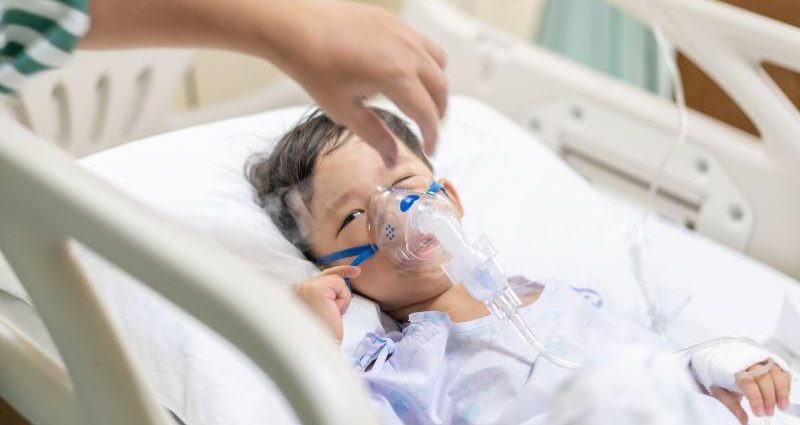THURSDAY, Feb. 24, 2022 (HealthDay News) — A drug developed for an autoimmune disease shows promise in treating a potentially life-threatening inflammatory condition in children who’ve had COVID-19, researchers say.
The rare condition is called multisystem inflammatory syndrome in children (MIS-C). It typically develops weeks to months after a child has had mild or even asymptomatic COVID-19.
“Working collaboratively, we’ve been able to demonstrate that viral particles that remain in the gut long after COVID-19 infection can instigate MIS-C,” said study co-author David Walt. He is a principal investigator in the pathology department at Brigham and Women’s Hospital in Boston.
“Building on this important discovery, we wanted to see if treatment with a drug developed for another condition — celiac disease — could help resolve symptoms in children experiencing MIS-C,” Walt said in a hospital news release.
MIS-C causes fever and hyperinflammation that can affect multiple organs, including the heart, brain and gastrointestinal tract.
Fifty-five children out of over 6,400 diagnosed with MIS-C have died since May 2020, according to the U.S. Centers for Disease Control and Prevention.
The researchers applied to the U.S. Food and Drug Administration in February 2021 for emergency compassionate use of the drug larazotide acetate to treat MIS-C.
The doctors gave the drug to four extremely ill children, aged 3 to 17, being treated for MIS-C at Massachusetts General Hospital. Larazotide decreases the release of a molecule called zonulin, which increases the risk that the highly inflammatory spike protein associated with COVID-19 can escape the gut and get into the bloodstream.
The four children who received four daily oral doses of larazotide acetate also received steroids and intravenous immune globulin (IVIG). They were compared to 22 children with MIS-C who received only steroids and IVIG.
Compared to those who didn’t receive larazotide, the children who got the drug had a much quicker recovery from gastrointestinal symptoms such as stomach pain, vomiting and diarrhea, and also had slightly shorter hospital stays.
The spike protein associated with the coronavirus cleared from the blood of children treated with larazotide within one day, compared to 10 days for the children who weren’t given the drug, according to the study.
“These findings suggest that larazotide may provide a safe and beneficial adjuvant therapy for the treatment of MIS-C,” the study authors concluded.
The results were published online recently in the journal Critical Care Explorations.
Larazotide is currently in a phase 3 clinical trial for approval to treat celiac disease, an autoimmune disease that leads to damage in the small intestine.
More information
For more on MIS-C, go to the U.S. Centers for Disease Control and Prevention.
SOURCE: Massachusetts General Hospital and Brigham and Women’s Hospital, news release, Feb. 23, 2022
Copyright © 2026 HealthDay. All rights reserved.

